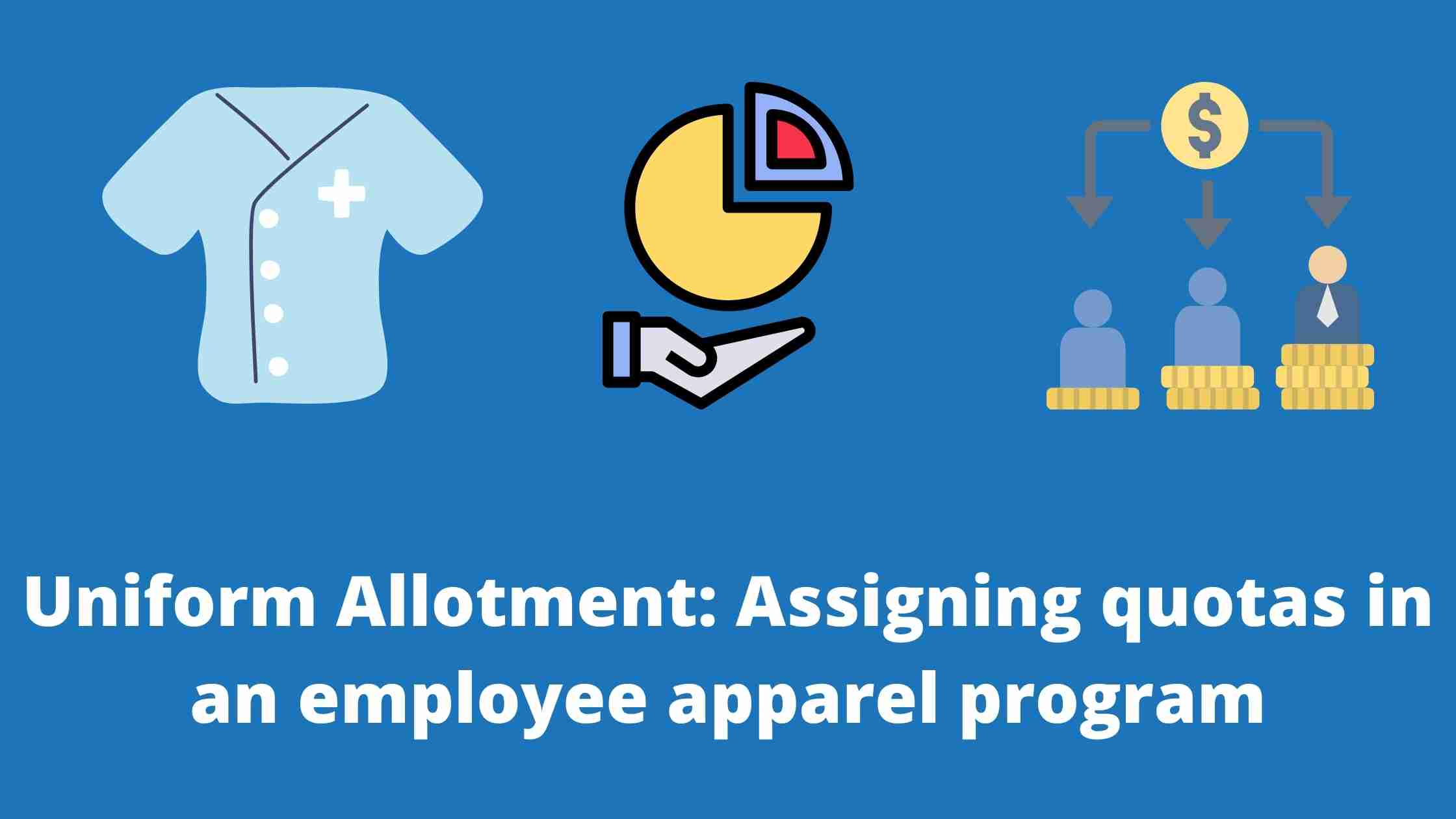
Are you a uniform manufacturer or distributor who provides employee apparel programs to large multinational companies or other organizations?
Then you might already know how hard it is to oversee the budget requirements of your clients.
That is if you were unaware of the incredible budgeting tools we provide for complex uniform purchase programs.
So, in this article, let’s understand how uniform allotment can help you assign quotas in an employee apparel program and in turn meet your client’s logistics requirements.
Uniform allotment or employee uniform quota or quota management is a tool to assign a specific quantity of uniforms to an employee over a certain timeframe through a uniform program.
Let’s take the example of an airline company for better understanding. The employees of the airline company may be given a uniform allotment of 2 pairs of shirts and pants per year.
In this case, the employee who was assigned this quota will be able to order only 2 pairs of uniforms in a given fiscal year.
Further, the company’s requirement to assign quota can be made complex by either letting the employee purchase both pairs at once or over a specific timeframe.
Most organizations that manage uniform allotment provide their employees to purchase through a uniform allowance.
A uniform allowance or a clothing allowance program is a set dollar amount provided to employees to purchase uniforms over a specific period of time, mostly 1 year or a fiscal year.
As mentioned above, it is helpful for providing uniform identity programs to a company that has logistic requirements that allow their employees with only a certain number of uniforms for a set time period.
In addition to this reason, below are some other resourceful uses of uniform allotment.
Uniform allotment is a pretty handy feature especially when there is a new product launch and the number of initial stock availability is limited.
In this case, assigning quotas to employees will help in everyone getting to purchase the new product while ensuring no employee is ordering more than required.
It allows the admin to restrict an employee from ordering more than the number of defined uniforms in a specific time period.
It also provides the functionality to manage quotas based on the employee group, like the job role, level, etc.
That being said, employee quotas are specific to an individual employee and not employee groups. This concept will be clearer when we talk about how to manage employee quotas through uniform allotment software.
Assigning employee quotas is also a simple way to encourage employees to purchase uniforms recurringly.
As uniforms are worn on a daily basis for long periods of time, they tend to get worn out pretty easily. By assigning quotas and encouraging employees to purchase uniforms recurringly, they are always dressed in their best in front of the customers.
This is a useful functionality for organizations in the hospitality industry where the employees are always required to dress up in pristine and fresh clothing.
Uniform allotment can be used to provide giveaways to a new joiner or an employee who was promoted to a higher position as a congratulatory gesture or to raise his/her spirits.
Or, it can simply be used to fulfill the uniform requirement of a newly joined employee in an organization.
Few organizations provide their employees with points or credits which can be accumulated over a period of time to purchase either uniforms or other merchandise.
This can be useful for companies that do not allow the carry forward of points/credits to the next fiscal year or quarter. This will encourage the employees to exhaust their points/credits within the set timeframe.
If you are wondering how to use the Employee Uniform Quota or Uniform Allotment feature for your e-commerce store, here’s a simple 5-step course of action.
Step-1: Group all the products under a single or multiple quota set or product groups that you would want to be purchased on a quota or allotment basis.
Step-2: Assign these quota set or product groups with the respective quota settings like assigning an employee or group of employees.
Step-3: Set the renewal period for when you want the quotas to be renewed. For example, every fiscal year, half-yearly, or quarterly.
Step-4: Assign payment programs or modes of payments through which a particular employee can order and purchase the uniforms.
You can choose from multiple payment methods like company allowance and credit card among many others or even split the usage between two payment methods for a single order placed.
Step-5: Set the start/end dates for the uniform allotment.
With all that’s mentioned about the uniform allotment, look like it takes a robust uniform allotment software to meet the complex requirements of an organization.
Thankfully, UniformMarket’s flexible uniform program provides the functionality and scalability to meet complex uniform allotment requirements.